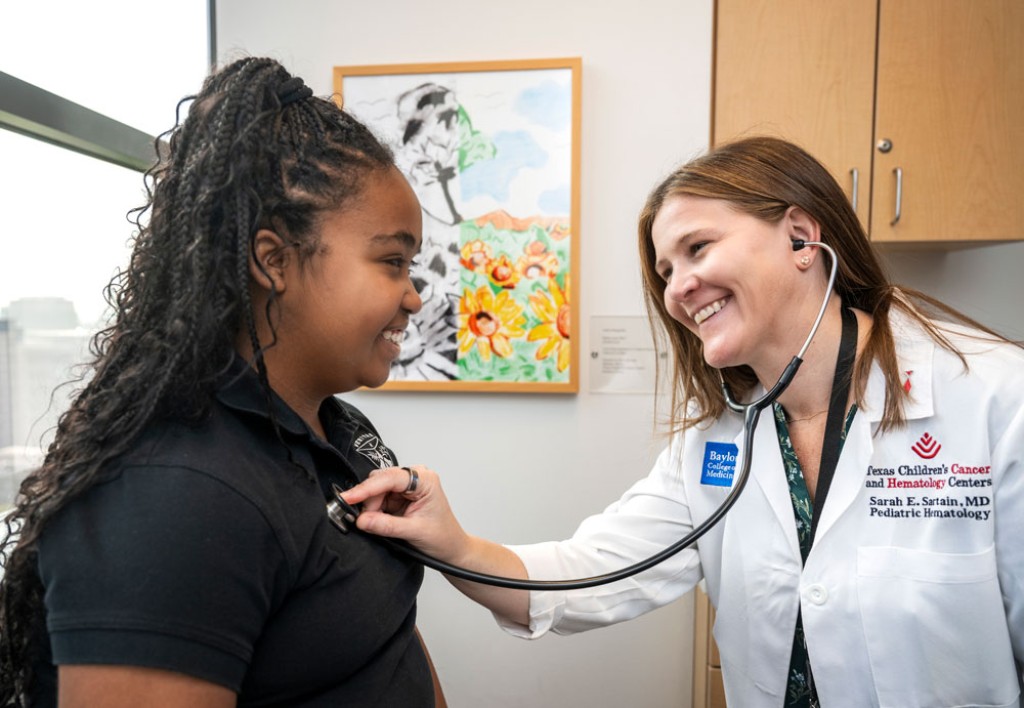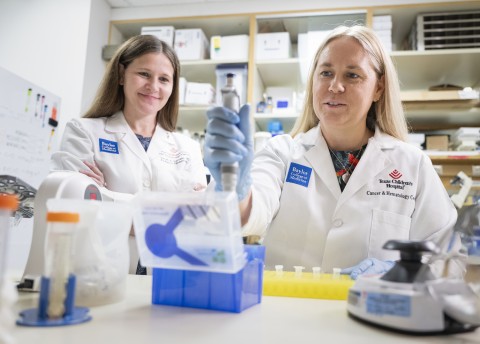
Fourth Year Advanced Training Fellowships Hemostasis and Thrombosis Fellowship

Texas Children’s Hospital | Baylor College of Medicine
The Pediatric Hemostasis and Thrombosis Fellowship at Texas Children’s Hospital addresses a critical and growing need in pediatric medicine. With rising rates of thrombosis in children and the rapid evolution of therapies for bleeding and clotting disorders, subspecialty expertise is more essential than ever. This fellowship was designed to fill a national training gap, offering advanced, focused education beyond what is typically covered in general pediatric hematology-oncology programs.
As the largest pediatric hospital in the U.S., Texas Children’s provides an unmatched setting for fellows to gain hands-on experience, conduct impactful research, and develop as leaders in one of the most dynamic and high-stakes areas of pediatric care.
Goals and Objectives
Overall Goal
To develop clinical expertise, translational research skills, and leadership in pediatric hemostasis and thrombosis.
Clinical Objectives:
Fellows will gain competency in diagnosing and managing:
• Hemophilia A & B (including prophylaxis, immune tolerance, and novel therapies)
• von Willebrand Disease and inherited platelet disorders
• Rare bleeding disorders (e.g., FXIII deficiency)
• Heavy menstrual bleeding in adolescents
• Perioperative and trauma-related hemostatic planning
• Venous and arterial thrombosis, stroke, and pulmonary embolism
• Anticoagulation in cardiac patients, ECMO/VAD, and vascular anomalies
• Thrombophilia evaluation and post-thrombotic syndrome
• Coagulation assay interpretation and interventional therapies
Research Objectives
Fellows will complete a mentored, hypothesis-driven clinical research project designed to deepen their academic and investigative skills. With support from faculty mentors and a scholarship oversight committee, fellows will have the opportunity to:
• Present their work at national meetings (e.g., ASH, ISTH, HTRS/THSNA)
• Publish findings in peer-reviewed journals
• Collaborate on the development or refinement of clinical practice standards at Texas Children’s Hospital

Program Eligibility
Eligible applicants must meet the following criteria:
• Completion of an ACGME-accredited fellowship in pediatric hematology-oncology (or equivalent)
• Board eligible through the American Board of Pediatrics (or equivalent, as judged by the program directors)
• Hold a J-1 visa (note: H1B visas are not accepted)
Program Duration
One year | July–June
Curriculum
Training includes outpatient and inpatient clinical experience, lab rotations, and interdisciplinary exposure. All rotations occur at Texas Children’s Hospital.
Rotations:
• 12 weeks outpatient clinics (hemostasis/thrombosis focused)
• 12 weeks inpatient consults (ICU and non-ICU)
• Up to 2 weeks night float (optional)
• 8 weeks in coagulation lab, transfusion medicine, ECMO/VAD
• 2 weeks interventional radiology
• 1 week pharmacy
• 10 weeks research/elective
• 4 weeks clinical elective
• 3 weeks vacation

Scholarly Activity
This fellowship offers a dynamic opportunity to lead a meaningful research project with 20% protected time dedicated to scholarly work. Fellows begin shaping their project during the application process, ensuring momentum from day one. Projects must be distinct from prior fellowship research and are supported by a dedicated faculty mentor and scholarship oversight committee.
Throughout the year, fellows will:
• Craft a compelling research hypothesis and study design
• Analyze data and, where applicable, develop a grant proposal
• Present findings at national conferences (e.g., ASH, ISTH, HTRS/THSNA)
• Prepare a manuscript for peer-reviewed publication
• Collaborate on clinical practice standards that elevate care across the Hematology Center
This experience not only strengthens academic skills but positions fellows to become thought leaders in pediatric hemostasis and thrombosis.
Supervisory & Patient Care Responsibilities
Fellows work under direct attending supervision, managing patients across acuity levels. Responsibilities include:
• Initial evaluations, diagnostics, and management planning
• Teaching junior fellows
• Presenting at rounds and multidisciplinary conferences
• On-call triage and consults
Educational Conferences
• Weekly: Hemophilia Treatment Center, inpatient HAT meeting, Hematology CME Conference
• Biweekly: Portal Vein Thrombosis Institute
• Additional: Grand Rounds, Problem Case Conference, fellow seminars, Great Plains ECHO Webinars
Apply
Fellows interested in this fellowship training program must complete and submit an application along with three letters of reference, a curriculum vitae and a statement of interest.
Hemostasis and Thrombosis Leadership
Director, Hemostasis and Thrombosis Program
Director, Hemophilia Treatment Center
Section Chief, Hematology






